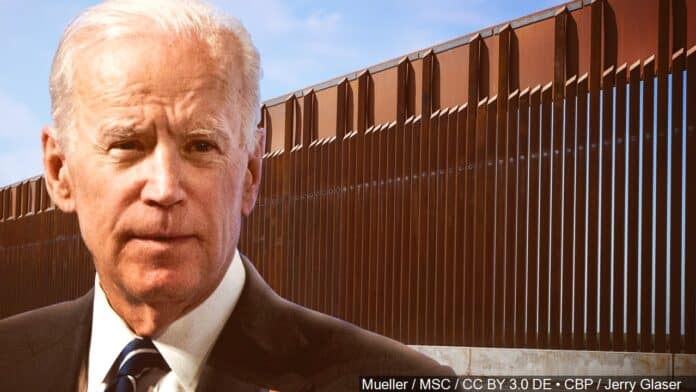It’s good to see that President Biden has addressed border issues early in his term. Using both executive actions and legislative proposals, he has taken steps that steer us back toward humanitarian policies that seek to treat immigrants, regardless of their legal status, as people.
Unfortunately, like those before, the administration seems overwhelmed by a new influx of immigrants to our borders. After the detention center for migrant children in the Rio Grande Valley was closed, for example, a new influx of migrants forced the reopening of another center, albeit in the El Paso area.
Just two months into his term, it is too soon to pass judgment on the steps he’s taken, and whether his attention to the border will continue throughout his presidency.
We hope Biden remains committed to immigration and border issues, and takes a hard look at steps that have been taken in the past, to determine what might have worked, what didn’t, and what hasn’t been tried.
Certainly, some administrations’ policies have been more effective than others, and it surely is a challenge to structure policies that both address our country’s need for secure borders and our need for a healthy influx of new Americans to provide workers and community members.
Perhaps the most solid recent border policy was seen during the term of George W. Bush, who sought to strengthen our border security with a comprehensive strategy of “boots on the ground,” modernized surveillance and strategic placement of new border fencing. At the same time, however, he signed several pieces of legislation that upgraded and expanded border crossings to improve trade and legal crossings.
It’s no minor coincidence that Bush’s policy benefited from his own experience as a border businessman and governor. He also utilized others who had firsthand knowledge of the border and its issues, including former Cameron County Judge Antonio O. Garza, who also had served as Texas secretary of state and was appointed ambassador to Mexico to manage relations with our southern neighbor and secure its cooperation on border issues.
Likewise, Biden would do well to empanel a committee to review existing policies and seek ways to improve them. That committee should include border residents and immigrants or first-generation Americans with direct knowledge of the issues.
Biden should look at existing policy that forces many migrants — some of them mere toddlers — to face immigration judges alone, with no knowledge of our laws, their rights or, often, even the language in which the hearings are conducted.
Several advocacy groups have offered to provide counsel and representation at those hearings, and they should be allowed to do so.
The virtual hearings implemented by the Trump administration could also help. For example, if a European, Asian or African petitioner needs a translator, an interpreter in another part of the country might be able to provide that service remotely.
These are simple steps that could be taken immediately, and an objective panel surely can come up with others, both systemically, such as streamlining the cumbersome legal visa process, and legislatively, such as addressing our arbitrary and ineffective quota system for certain visas.
Any evidence of serious reconsideration of our immigration and border policy, however, would be welcome.




